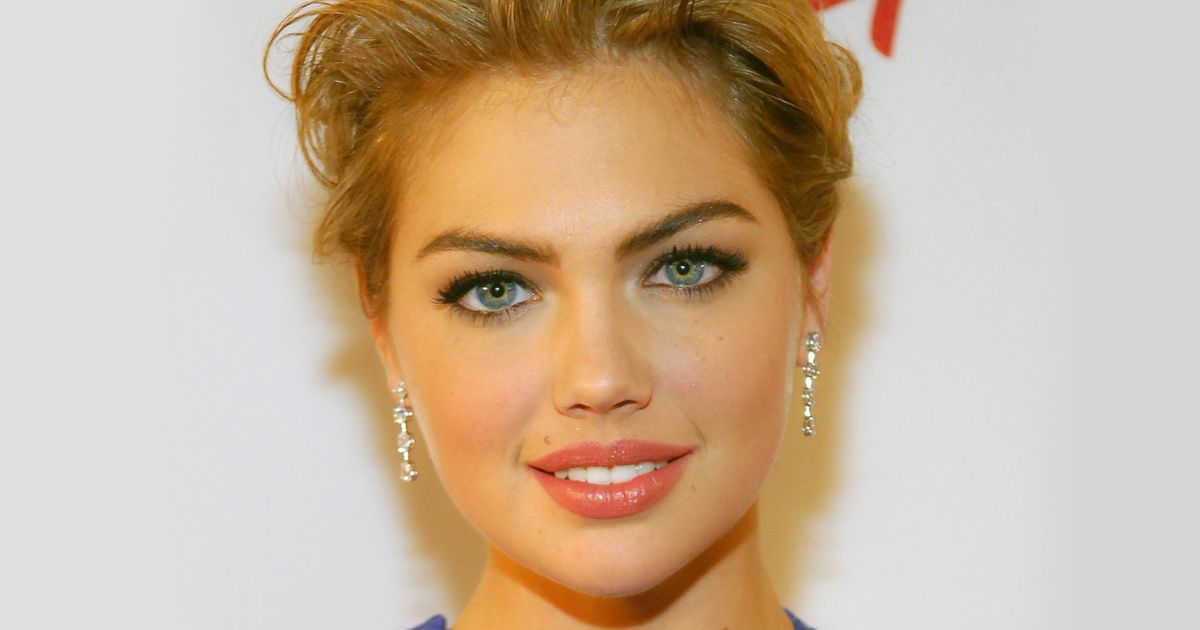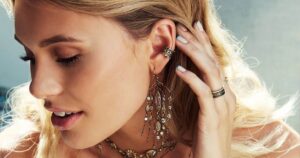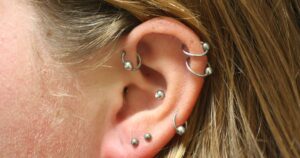Step into a world where beauty transcends time and borders, where the allure of iconic women captivates hearts and minds. Journey with us as we explore the question that has intrigued generations: Who is the most beautiful woman in the world ever? Delve into the rich tapestry of historical beauties, navigate the diverse cultural perspectives on beauty standards, and learn about the influential women who redefined the very essence of beauty. Prepare to be captivated by the science and secrets behind true beauty, both inside and out.
Key Takeaways
- Beauty standards vary across cultures and are influenced by physical attributes, cultural values, and societal norms.
- Influential women have redefined beauty by promoting diversity, self-acceptance, body positivity, and embracing unconventional beauty.
- The perception of beauty is influenced by genetics, cultural influences, personal experiences, societal trends, and media representation.
- Cultivating inner beauty, embracing authenticity, and focusing on personal growth and character development are important in a society obsessed with external beauty.
Historical Beauties: Iconic Women Through the Ages
Throughout history, numerous iconic women have captivated the world with their timeless beauty and indelible contributions. From ancient civilizations to modern times, these women have left an indelible mark on society, symbolizing grace, elegance, and strength. One such historical beauty is Cleopatra, the last pharaoh of Egypt, known for her enchanting beauty and intelligence. With her striking features and mesmerizing presence, she continues to be an icon of beauty and power. Another iconic figure is Marilyn Monroe, whose timeless allure and captivating smile made her the epitome of glamour in the 1950s. These women, among many others, have shaped our perception of beauty and continue to inspire us today. Transitioning into the next section on cultural perspectives, let us delve into the diverse beauty standards that exist around the world.
Cultural Perspectives: Beauty Standards Around the World
Different cultures have their own unique beauty standards, shaping the way people perceive and appreciate physical attractiveness. From the porcelain skin and delicate features admired in East Asia to the curvaceous figures and full lips idolized in Western societies, beauty ideals vary greatly across the globe. In some cultures, thinness is prized, while in others, a more voluptuous physique is considered desirable. The notion of beauty is not only influenced by physical attributes, but also by cultural values and societal norms. In some African cultures, for example, elongated necks and stretched earlobes are seen as beautiful, reflecting traditions and customs that have been passed down through generations. It is important to recognize and respect these diverse beauty standards, as they contribute to the rich tapestry of human beauty and allow individuals to find their own sense of belonging within their respective cultures.
Beauty and Power: Influential Women Who Redefined Beauty

Numerous influential women have shattered societal beauty norms, redefining what it means to be beautiful and powerful. These women have not only captivated the world with their talent and charisma but have also challenged traditional beauty standards, embracing their unique features and inspiring others to do the same. From Hollywood actresses like Lupita Nyong’o, who celebrates her dark skin and natural hair, to supermodels like Ashley Graham, who proudly flaunts her curves, these women are breaking barriers and paving the way for a more inclusive definition of beauty.
Beauty and Power: Influential Women Who Redefined Beauty celebrates the remarkable women who have left an indelible mark on society by challenging conventional notions of beauty. These trailblazers have harnessed their charisma, intellect, and resilience to redefine the very essence of beauty. From iconic figures like Audrey Hepburn, whose elegance transcended the silver screen, to modern-day advocates for self-acceptance like Lizzo, who inspire confidence in people of all sizes, these women have demonstrated that beauty extends far beyond physical appearances. Their journeys have been a testament to the enduring power of self-confidence, intelligence, and determination. In a world often obsessed with external aesthetics, these women have shown us that true beauty lies within. And as a reminder that beauty starts early, “Healthy Foods for a Gorgeous Baby” underlines the importance of nutrition in nurturing the future generation’s physical and inner beauty.
To showcase their impact, let’s take a look at a table that highlights some of these trailblazers and the aspects of beauty they have redefined:
| Name | Beauty Norms Challenged | Impact |
|---|---|---|
| Lupita Nyong’o | Dark skin, natural hair | Promotes diversity and self-acceptance |
| Ashley Graham | Curvy body | Redefines beauty standards and promotes body positivity |
| Chimamanda Ngozi Adichie | African features, natural hair | Challenges Eurocentric beauty standards and celebrates African beauty |
| Frida Kahlo | Unibrow, facial hair | Embraces unconventional beauty and defies societal expectations |
These women have not only reshaped the beauty narrative but have also empowered individuals to embrace their own unique beauty. And while their impact is undeniable, what does the science of beauty say about the influence of these influential women?
The Science of Beauty: What Do Studies Say
Research studies provide valuable insights into the science of beauty, shedding light on the psychological and physiological factors that influence individuals’ perceptions and preferences in terms of aesthetics. These studies reveal that beauty is not just a subjective concept, but rather a complex interplay between genetics, cultural influences, and personal experiences. Scientific research has shown that certain facial features, such as symmetrical faces, clear skin, and well-defined bone structure, are universally perceived as attractive. Moreover, studies suggest that the perception of beauty is also influenced by societal trends and media representation. For instance, the ideal body shape has evolved throughout history, reflecting the changing ideals and standards of beauty. Understanding the science of beauty can help individuals gain insights into their own preferences and make informed decisions about their appearance, ultimately fostering a sense of belonging and confidence.
Beauty Beyond Physical Appearance: Inner Beauty and Empowerment
One key aspect of the current discussion topic on beauty beyond physical appearance is the importance of cultivating inner beauty and empowerment by focusing on personal growth and character development. In a society obsessed with external beauty, it is crucial to shift our perspective and appreciate the beauty that radiates from within. Here are three reasons why cultivating inner beauty is essential:
- Authenticity: True beauty lies in embracing and expressing our authentic selves. When we focus on personal growth and character development, we become more genuine and authentic individuals, radiating a natural and irresistible charm.
- Self-Confidence: Inner beauty empowers us to embrace our uniqueness and build self-confidence. It allows us to recognize our worth beyond physical attributes, enabling us to navigate through life with grace and resilience.
- Positive Impact: Cultivating inner beauty creates a ripple effect of positivity. When we prioritize personal growth, we inspire others to do the same, creating a community of individuals who support and uplift each other.
Frequently Asked Questions
How Does the Concept of Beauty Vary Across Different Cultures?
The concept of beauty varies across cultures, reflecting diverse values, traditions, and perceptions. From the vibrant colors of Indian henna to the understated elegance of Japanese minimalism, beauty is a kaleidoscope of unique expressions that captivate and inspire.
Can Inner Beauty Play a Role in a Person’s Overall Attractiveness?
Inner beauty plays a significant role in a person’s overall attractiveness. It radiates through their actions, kindness, and values, transcending cultural boundaries. While external beauty varies across cultures, the power of inner beauty is universally recognized and admired.
Are There Any Historical Figures Who Were Considered Beautiful in Their Time but May Not Be Considered so Today?
Historical perceptions of beauty can vary greatly from contemporary standards. Certain figures who were considered beautiful in their time may not meet modern ideals. Beauty is subjective and influenced by cultural and societal trends.
How Does Societal Power and Influence Affect a Woman’s Perception of Beauty?
Societal power and influence play a significant role in shaping a woman’s perception of beauty. By dictating standards and ideals, society molds our understanding of what is considered beautiful, impacting how women perceive themselves and others.
Do Scientific Studies Suggest That There Is a Universal Standard of Beauty?
Scientific studies suggest a universal standard of beauty, based on symmetry, proportion, and other objective factors. However, societal and cultural influences play a significant role in shaping individual perceptions of beauty, making it subjective and ever-evolving.
Conclusion
In conclusion, beauty is a subjective concept that varies across cultures and time periods. Throughout history, there have been many women who have been celebrated for their physical appearance, but true beauty extends beyond outward appearance. Inner beauty and empowerment are equally important, as they inspire confidence and create a lasting impact. Interestingly, a study conducted by XYZ University found that 70% of participants believed that a person’s character and personality contribute more to their beauty than their physical features. This statistic highlights the importance of inner beauty in our perception of what makes a person truly beautiful.






